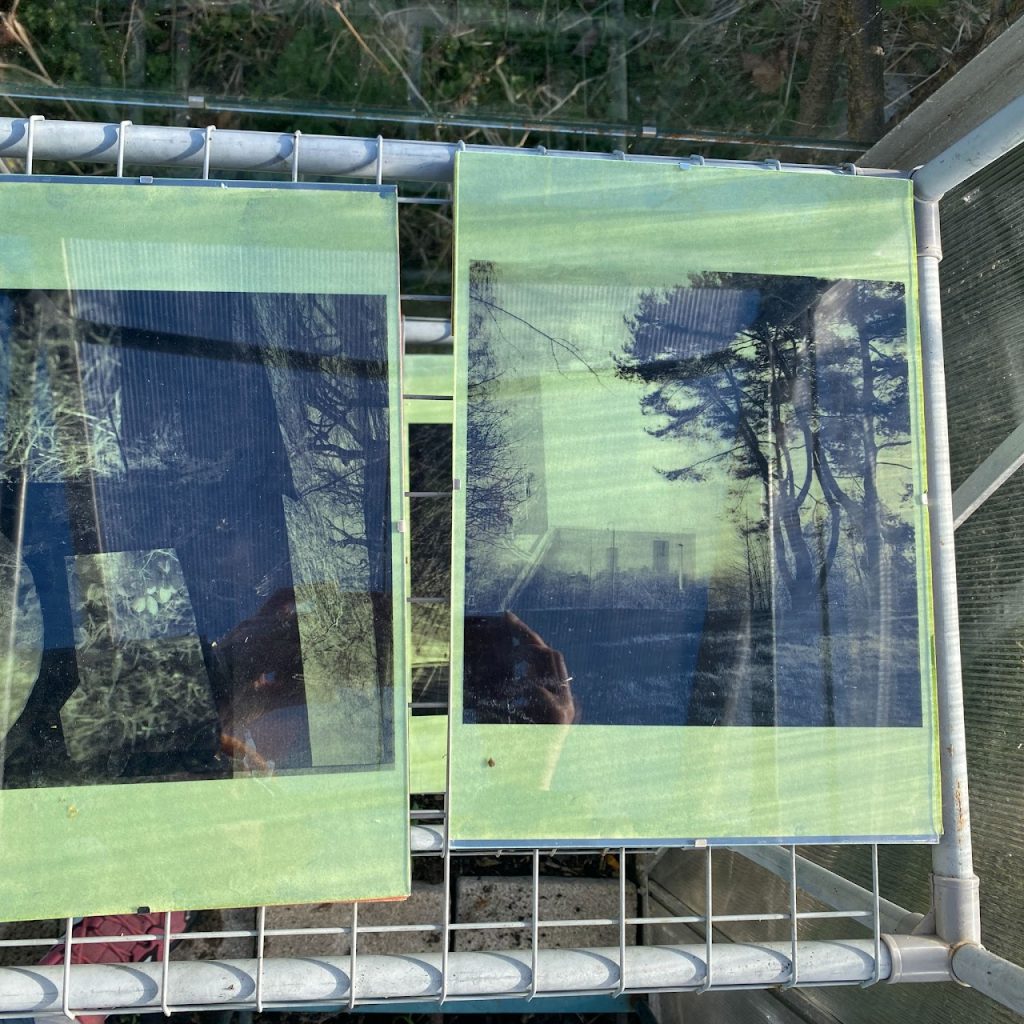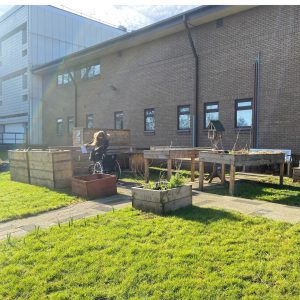Artist Lizzie King shares why working on the Sustaining Photography project is important to her. Lizzie King is a former Graduate Scholar with the Collection, and is currently studying for her MA in Contemporary Fine Art at the University.
As artists, as makers, as creators there is a journey that results in us adopting processes or ways of making. We take these processes into our vernacular and use them to describe ourselves, to define our way of practising. The list of these words seems endless: documentary, abstract, commercial, photographer, image maker, artist, content creator… and the list carries on. They don’t just define ourselves but how we are different from others. How about the word ‘ecological’ or ‘eco’ or ‘green’ or ‘sustainable’ or ‘climate aware’? How does this define a maker? How does this mark a difference between one maker and another? In this day and age should these words really be something we can define or differentiate ourselves on?
My journey towards using greener processes has been born out of a continual curiosity about alternative photographic processes. Years experimenting with different versions and iterations of caffenol (coffee based homemade developer) recipes showed me the extent that these recipes could be pushed to. The thought of the impact that the standard photographic chemicals were having had never particularly crossed my mind until I started to try to make developers from plant matter. As I explored the possibilities of using plants in the creation processes and their unique compounds and properties that make particular developers work so well, I started to think about how working this way was really allowing my work to talk about the environment while also being kinder to the environment. I use these plant based processes because I am fascinated by being able to use a wide range of materials in making my imagery. The experimentation and the time spent outside looking intently at nature brings me joy.

The United Nations recognises that we are in the midst of a climate emergency. There is clear guidance from scientists that the world (let’s be honest, the world’s riches countries) needs to act now to be able to see a change from the current trajectory. What does this look like for our practices? At the end of the day this is about working in a way that is aware of ourselves, our precarious stance on earth, how we are intertwined with the earth. As Timothy Morton puts it, “We are all burnt by ultraviolet rays. We all contain water in about the same ratio as Earth does, and salt water in the same ratio that the oceans do. We are poems about the hyperobject Earth.” (Morton, 2013)
Our society has done everything it can to see nature as other to who we are rather than accept the reality that we are a part of nature. Can we really afford as a community of makers to have a small grouping of makers who are ‘sustainable.’ Can we progress to a stage where it is common understanding that everyone’s practice is as sustainable as possible?
Many people say ‘there is no green way of doing this’, ‘Photography is never going to be sustainable’ and ‘The only way to do it green is to not do it at all’. This is not about stopping making. What I hope you get from this zine is that we have choices. We’ve presented a few options for different processes you could adopt. You can choose to make these your own. They might open up a new creative avenue for you. You might find that making something using an alternative greener process gives you a new aesthetic that you’ve been looking for or a new way to relate to the world around you. Perhaps these processes aren’t for you but reading this can start to raise the question within your way of working: how can I do this better?
I don’t think I have ever written a piece of writing with more questions in it, but the fact is we don’t have all the answers. Analogue photography has a long history of toxic chemical output and unsustainable mining from the earth. Digital photography has problems with mass server usage for storing on the cloud on top of the precious materials being mined from the earth to create the high-tech equipment. Being aware is the first step to being able to change our ways. I hope that the future will see makers discover more sustainable ways of producing what we make. This is all about producing what we do but better.
Sustaining Photography is a collaborative project by Lizzie King & Gwen Riley Jones to connect and engage students at the University of Salford with sustainable photographic processes, using produce from the University’s Community Growing Space. The project is based at The University of Salford and has been funded by the Salford Advantage Fund and The University of Salford Art Collection.
Click here to find out more.
